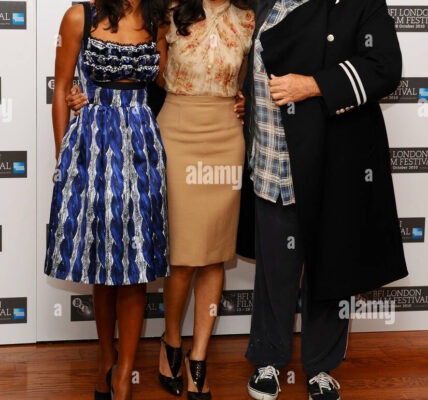Celebrating its fifteenth birthday this year, the British Independent Film Awards—or BIFAs, to give it its popular name—has become a major date in the awards calendar for homegrown cinema. If it’s where movies like Slumdog Millionaire and The King’s Speech first picked up a Best Film award before beginning their path to Oscar glory, this is only the tip of an increasingly important industry iceberg.
With the BIFAs also supporting the emergence of such talents as Duncan Jones, Asif Kapadia, Clio Barnard and Shane Meadows, to name but a few, it’s proven itself more than just an annual red-carpet event. Rather, it’s been at the heart of the evolution of the British film industry over the past decade-and-a-half, drawing attention to smaller-scale films that might otherwise go unnoticed.
To discuss this, movieScope’s James Mottram was joined by BIFA directors Tessa Collinson and Johanna von Fischer in London’s Soho House. Also present, for what proved to be a lively round-table debate concerning the past, present and future of British film, were actress Jodie Whittaker (a former BIFA nominee and jury member) and producers Mia Bays and Jim Wilson (both members of BIFA’s advisory committee).
James: How did the British Independent Film Awards start?
Tessa Collinson: They started with a number of people in the industry feeling there was a need for an awards ceremony that represented independent British film, particularly as BAFTA was growing and moving into a more international arena. Elliot Grove, who had started the Raindance Film Festival already, then founded the Awards in 1998.
Johanna von Fischer: It was to fill in that gap of British-made movies that BAFTA wasn’t really catering for any more, because of the fact that they’re looking at all the films that were released in the UK.
James: Jodie, when did you first become aware of the BIFAs?
Jodie Whittaker: When I was nominated for Venus. Then, a few years later, in 2009, I was asked to be on the jury, and I became quite psychotic about it! I went to town! I can’t tell you how much I enjoyed watching everything and having this month where everything else stopped—even though I was filming at the time—to cram in all the shorts, all the nominated features.
James: Cast your minds back to 1998… What was the landscape for British film like then?
Mia Bays: I was at the Film Consortium, and the atmosphere was that everyone was a bit embarrassed about British film.
Jim Wilson: But in another way it was the boom time—that was the feast to the famine we’re now in. My memory of the late ’90s was that this was the clover period. I came back to join FilmFour and it was the flush of the lottery money, of Cool Britannia… There were films coming out of our ears!
Mia: I don’t know if we were as proud of what we were doing then.
Jim: But I do think that the industry was flush, and lots of films were being made. For BIFA, like any embryonic institution, we weren’t taken very seriously. We had to fight to get attention because people didn’t know if we were real.
James: How have things evolved since then?
Johanna: Probably from about 2004, it’s seemed to have got stronger and stronger, and healthier and healthier, from our point of view. Every year people were saying to us it’s the end of the British film industry, and then the next year, here would come all these amazing films.
Jodie: Because the industry is still hard, and it is still incredibly difficult to make a film, there is a guerrilla feeling about it… There’s a lot of risk-taking now. I think that’s what I find exciting when you’re watching all the different types of films—you do have Slumdog Millionaire or The King’s Speech, but you also have Strawberry Fields or Treacle Jr. All these things that are made possible without a star and a campaign that will see it to the Oscars.
We definitely have a problem… There’s a lot of support with new talent; there’s a massive focus on debuts. What is hard is the second and third film. – Mia Bays, producer
James: Mia, you’ve been involved in the Microwave scheme which has funded films like Shifty and Ill Manors on £100k budgets. How has that helped filmmakers?
Mia: The whole point of the scheme was to give people a break—and utilising the skills of people that are much more experienced to help them. We have lots of high-profile mentors. Ben Drew was mentored by Pete Travis, for example. It’s a few days they spend together, but it makes all the difference. And that just really helps the quality of the movies. We can’t take the credit entirely for the micro-budget boom but it’s certainly helped.
James: So, what else can be done to help young British filmmakers?
Mia: We definitely have a problem… There’s a lot of support with new talent; there’s a massive focus on debuts. What is hard is the second and third film. And I think we need more attention in that area, with public funds. The problem lies in that the ‘new talent’ definition stops as soon as they’ve had their first film. Lots of amazing filmmakers did huge apprenticeships… when you look back. Go back to Ealing, and those days, when you could make a B-movie or a 30-minute film… you got to practice a lot more. A lot of our amazing filmmakers didn’t find their voice until their sixth film. So I think that’s a problem.
Jodie: I think that’s terrifying. If you are a debut [filmmaker], and you make the film and it isn’t Attack the Block or Tyrannosaur, and it doesn’t get that attention, but it’s still good… It’s incredibly cutthroat!
Johanna: We had a guy called Louis Tisné come and talk to us; he’s trying to set up a mentor programme for second- or third-time directors. And he gave us the statistic that 60 per cent of first-time directors never make a second film. And it’s not always about quality. You hear stories about someone getting the next really big film, and then that film dies, and four or five years later, nobody is talking about them any more.
Mia: The statistics used to be way worse. Around 2000, it was like 80 per cent of British film directors never made a follow-up.
Tessa: Maybe if you get an award it does help. A lot of first-time directors pull in all their favours to make their first film, then find themselves making a second, larger-budget film and are faced with tough competition when trying to get funding. But, having said that, if you look at BIFA debut directors, they’ve not done too bad. Shane Meadows, Lynne Ramsay, Kevin Macdonald, Asif Kapadia—these were all debut people. John Crowley, Annie Griffin, Anton Corbijn, Steve McQueen, Duncan Jones, Clio Barnard, Paddy Considine—they are kind of doing OK!
James: Still, in the case of someone like Paddy Considine, for example, you knew he was going to make a good film…
Jodie: Oh! Not a given at all! I think that slightly undermines his achievement in what he did do. As an actor, if someone said, ‘In eight years time, you’ll know how to make a film’… You don’t enter a set with that mind-set.
James: But what concerns me is less the Paddy Considines of this world, but those working in the British genre industry, which is not very well supported.
Johanna: But if an award ceremony does recognise that, I’d say BIFA does. Look at Neil Marshall and The Descent. He won in the year of The Constant Gardener for Best Director. So I think sometimes those films do show up…
Jim: Let’s be fair. That’s also a cinema culture thing, one that’s bigger than BIFA. If you go to the [Independent] Spirit Awards, which is our sibling equivalent, or the Césars… Award ceremonies celebrate film as an art form. I don’t think that’s a dirty word. So they tend towards dramas, and a certain type of filmmaking, and they tend against—in a very general way—overt genre filmmaking.
Johanna: But one of the nice things about BIFA is that it’s a small group and we do debate it. We do have big discussions about those films.
Jodie: It’s not exclusive either. There may be a vigorous debate about whether The Inbetweeners is [viable]. It might be an incredibly profitable film, but is it a very good film? Is it an excellent piece of cinema, and therefore do people want to nominate it? I don’t think that’s BIFA being against a certain type of filmmaking.
James: The BFI’s recent Film Forever plan emphasised three key areas: education, audiences and archives. Do you think they are on the right track for supporting British film?
Johanna: Personally, I think education is really important, particularly around film. I think Film Education and Film Club are brilliant schemes and really, really important. If you haven’t got someone like I did in my life who was passionate about film… it opens so many doors. It’s not just about getting all these people into media and the film industry. It’s actually about breaking boundaries. I think film has such a wide reach. And if you can get people into the art of it, at a young age—rather than just the celebrity experience or watching what their friends are watching—then it’s really worth it. So education is big.
Jodie: With education, you are told that the Odeon and the Vue aren’t the only cinemas around. You can go to your local Picturehouse, and that will show the film that you’ve been talked to about by a peer. That’s really important as well. It isn’t just what’s on at the multiplexes. Keeping an independent cinema going… it’s so devastating to think how many are closing. They can’t advertise on television and they can’t do two-for-one deals, because they can’t afford it.
Mia: Yet I think there is a disconnect between about what the industry does champion all the time and what people go and see.
Tessa: There’s no getting away from the fact that an awards ceremony like BIFA helps highlight those films without a large marketing budget to a wider audience. For example, at the 2011 BIFAs previous winner and nominee Daniel Craig presented Best Film… and the winning film was Tyrannosaur. That association through press coverage and Internet searches with someone as high-profile as Daniel might make someone out there take a look at a film they might never have considered otherwise. •











